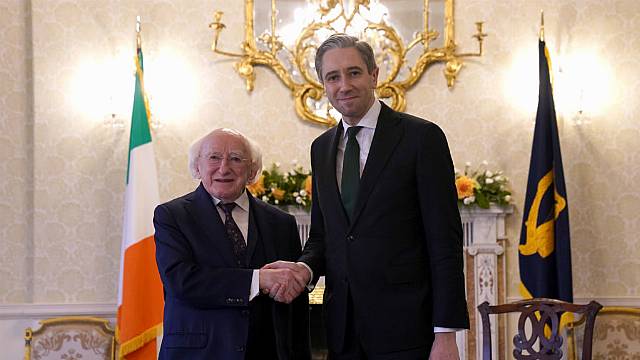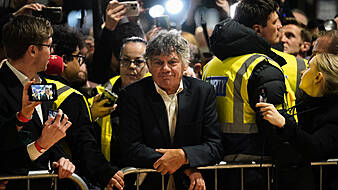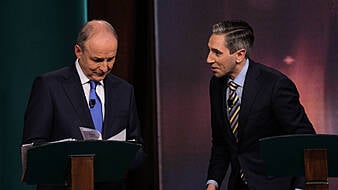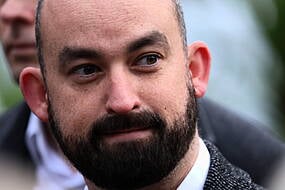President Michael D Higgins has formally dissolved the Dáil to mark the beginning of the general election campaign that will conclude with polling day on November 29th.
The dissolution has triggered the start of what will be a relatively short three-week campaign.
Taoiseach Simon Harris went to the President’s residence at Áras an Uachtaráin in Phoenix Park to undertake the formalities required to call an election under the Constitution.
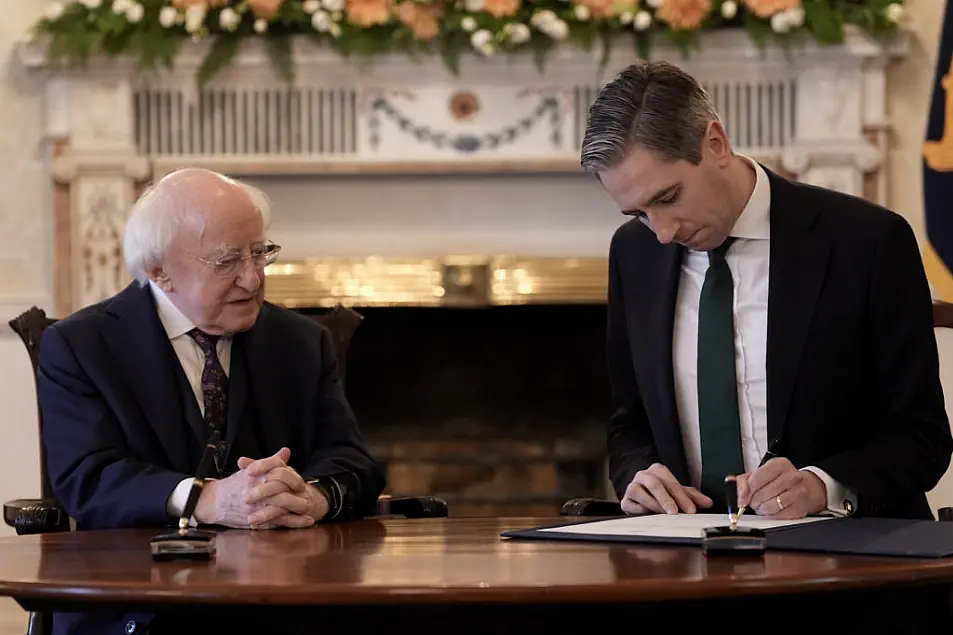
Before heading to the Áras, Mr Harris said it had been the honour of his life to serve as the country’s leader.
“We are a small country with a big influence all over the world and we have many assets but no asset more valuable than our people,” he said.
“Irish people are decent, they’re hardworking, they’re fair, and it is the honour of my lifetime to serve as your Taoiseach.
“In just seven short months, I have travelled to every part of this beautiful country. I’ve met thousands of you and we have discussed hundreds of issues. Your concerns are my priorities and over the next three weeks I will seek a mandate to continue as your Taoiseach and to deliver for you on the things that matter most to you, your family, your community and to our country.
“Others will, of course, seek alternative mandates, and it is vital we have an election that fully considers our very different visions for our country’s economic and social future.”
He added: “This election must be a safe and respectful campaign for all politicians and all their teams and I wish all candidates luck.
“Finally, I ask just one thing of the Irish people – value your vote, use your voice. That’s how this country works, that’s how we listen, that’s how we act on your behalf.”
The move has brought to an end the four-and-a-half-year lifespan of the historic Fine Gael, Fianna Fáil and Green Party coalition government.
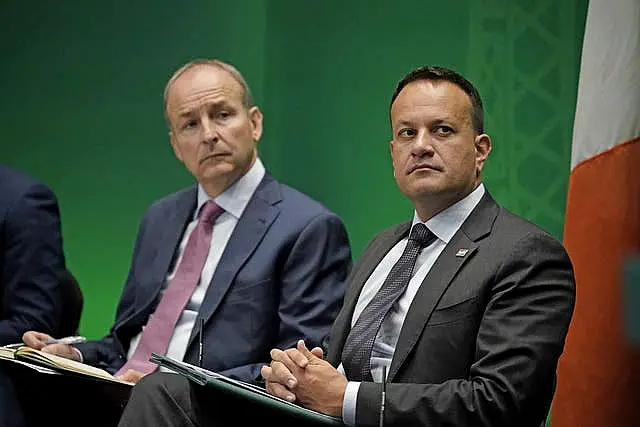
After the 2020 general election delivered an inconclusive result, Fine Gael and Fianna Fáil agreed to set aside almost a century of animosity and share power.
The Green Party joined the administration as a junior partner.
Fianna Fáil leader Micheál Martin held the position of Taoiseach for the first half of the mandate, with Fine Gael’s Leo Varadkar taking over in December 2022.
Mr Varadkar resigned from the role earlier this year and was succeeded by his party colleague Mr Harris.
Tánaiste Mr Martin joined some of his party’s election candidates in Dublin ahead of the formal dissolution.
Speaking outside Leinster House, Mr Martin said the outgoing coalition had “weathered many significant storms and shocks”.
He said the coming five years would also be challenging for the Irish economy, as he highlighted the ongoing impact of conflicts around the world and also the potential for a shift in US trade policy.
“The greatest threat to the Irish economy is external, and we need experience and we need leadership that has already demonstrated its capacity to weather significant events and shocks to lead us through the next challenging five years – and economically, it will be challenging,” he said.

Mr Martin also insisted he was not concerned at the prospect of having to debate with his erstwhile partner in government, Mr Harris, during the election.
“Debate is the lifeblood of democracy and elections,” he said.
“I look forward to the debate because Fianna Fáil will be putting forward its priorities, its policies, as we did in the last election.
“We spent a lot of time last time negotiating a programme for government, so I am looking forward to the debates, no worries at all.”
Mr Martin again made clear he would not countenance going into a coalition with Sinn Féin post-election.
Since the 2020 poll, the Coalition has had to grapple with the same global shocks that confronted many governments around the world – the Covid-19 pandemic and the inflation crisis sparked by Russia’s invasion of Ukraine.
Ireland has also experienced a surge in migration numbers in the last two years, in large part due to the tens of thousands of Ukrainian refugees who sought safe haven in the country.
There have also been increased rates of asylum seekers arriving from elsewhere in the world.
This, coupled with post-recession, pre-existing housing shortages, has placed unprecedented strain on state accommodation provision, leading to tensions and disputes in some local areas over plans to repurpose hotels and other buildings into facilities for international protection applicants.
The rise of the migration issue up the political agenda has come at a time when the government continues to grapple with what itself has acknowledged is a crisis in housing.
Despite the coalition’s efforts to increase the number of state-built homes and promote policies to support renters and first-time buyers, record homelessness figures are still on the rise and house prices and rental costs remain stubbornly high as demand consistently outweighs supply in many areas, particularly in Dublin.

To the Government’s critics, the housing crisis appears paradoxical when set in the context of booming public finances, with the state’s coffers now buoyed each year by billions of euros in tax receipts from multinational giants who have set up bases in Ireland.
The same argument is made when it comes to problems besetting some parts of the country’s health service, such as the lengthy waits endured by children requiring spinal surgery.
The government parties say real progress has been delivered in housing and healthcare provision during a mandate that ends with the country’s finances in rude health.

Sinn Féin won the popular vote in 2020 but a failure to run enough candidates meant it did not secure sufficient seats in the Dáil to give it a realistic chance of forming a government.
The main opposition goes into the election on the back of a difficult number of weeks, having faced intense criticism over its handling of several controversies related to allegations and complaints against party members.
In the last 12 months the party has also seen its poll ratings dip quite significantly, dropping from front-runner to leave it trailing behind both Fine Gael and Fianna Fáil in a series of recent polls.
